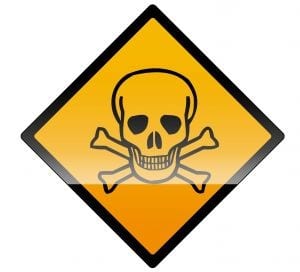Many household items, like cleaners, look harmless. Afterall, most cleaning products smell like welcoming spring meadows or delicious citrus fruits. Unfortunately, these are often the causes of accidental ingestion among children. Unfortunately, 90% of poisoning cases come from seemingly harmless household items. In recognition of March’s National Poison Prevention Week, let’s break that cycle, at home and within the workplace.

Poisoning is no random occurrence. As many as 2 million people suffer from poisoning every year. The U.S. Congress officially established Poison Awareness Week on September 16, 1962. Since then, activities to spread information about poisons and how to prevent them have been set in motion.
National Poison Prevention Week highlights how fatal poisoning can be, and most importantly, spreads awareness on how people can prevent incidences of poisoning in the home and workplace.
When you think of poisoning, what do you think of? Most likely chemicals, right? Surprisingly, there are different factors that can cause poisoning, and one of them is the improper disposal of electronic wastes.
Improper disposal of batteries, electronics, and other seemingly harmless, old and broken gadgets can harm you and the environment. The heavy metal components in electronics like mobile phones, printers, and computers often contain toxins like mercury, cadmium, and lead. When improperly disposed of, these toxins can contaminate streams and lakes, which harm nature and mankind. Through proper disposal, you can help lessen the dumping of electronic waste in the landfills, which can contaminate the soil and poison bodies of water.
Whenever possible, recycle electronics instead of throwing them away. Sell or donate old gadgets that you no longer use. Likewise, buy used to save on unnecessary use of natural resources.
